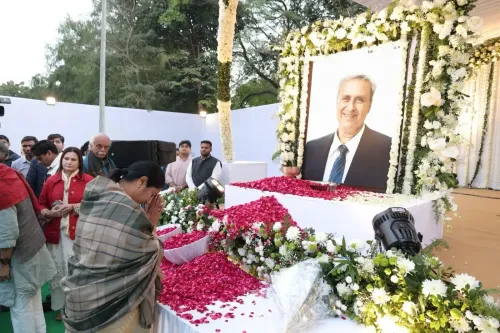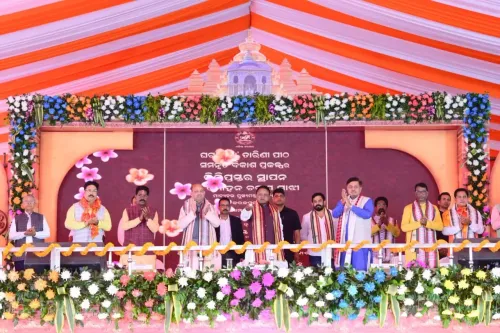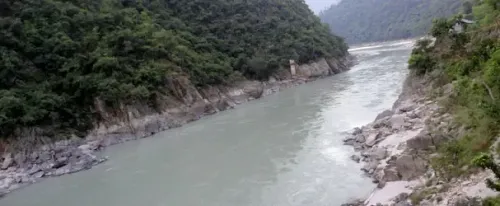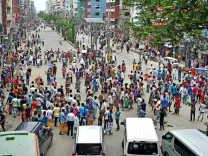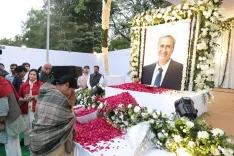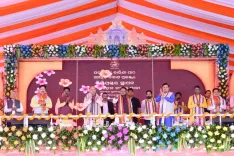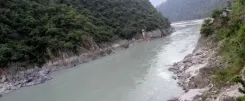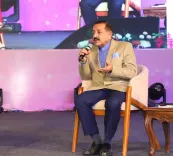Does Punjab Have Any Water to Share Amidst the Crisis?
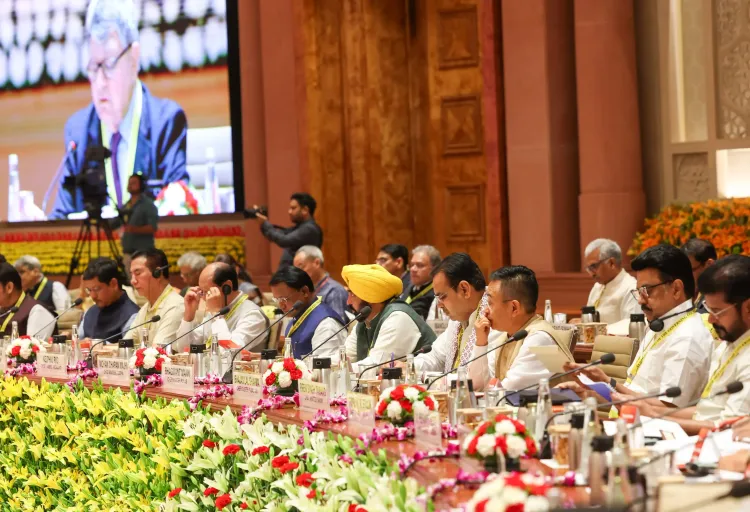
Synopsis
Key Takeaways
- Punjab is facing a serious water crisis.
- No surplus water is available for sharing.
- Yamuna-Sutlej-Link canal is proposed for construction.
- Groundwater levels are critically low.
- BBMB's decisions have faced criticism from Punjab.
New Delhi, May 24 (NationPress) Chief Minister Bhagwant Mann emphasized on Saturday that Punjab lacks any surplus water to share with other states, including Haryana, due to the ongoing water crisis. Participating in the 10th Governing Council meeting of the Niti Aayog, he suggested that the Yamuna-Sutlej-Link (YSL) canal be prioritized for construction instead of the Satluj-Yamuna Link (SYL) canal. Mann pointed out that the Ravi, Beas, and Sutlej rivers are already experiencing deficits, and water should be redirected from surplus areas to those in need.
The Chief Minister reiterated Punjab's long-standing request to be involved in discussions regarding the allocation of Yamuna waters. He noted that a pact for the Yamuna-Sutlej Link project was established between the historical states of Punjab and Uttar Pradesh on March 12, 1954, granting Punjab two-thirds of the Yamuna waters.
He mentioned that this agreement did not specify any particular region to benefit from the Yamuna waters. Before the state's reorganization, the Yamuna, along with the Ravi and Beas, flowed through what was then Punjab. However, during the distribution of river waters between Punjab and Haryana, the Yamuna waters were overlooked, while the Ravi and Beas waters were accounted for.
Referencing a report from the 1972 Irrigation Commission set up by the Government of India, Mann claimed that Punjab, after its 1966 reorganization, falls within the Yamuna river basin. Consequently, if Haryana has rights to the waters of the Ravi and Beas, Punjab should also hold equal claims over Yamuna waters.
He lamented that these requests have been disregarded, leading to wastage of water due to the absence of a storage structure on the Yamuna. Mann advocated for Punjab's claims to be acknowledged during the revision of the agreement, ensuring that Punjab receives its rightful share of Yamuna waters.
Addressing the perceived bias of the Bhakra Beas Management Board (BBMB), he explained that the board was established under the Punjab Reorganization Act of 1966 to manage the water and power supply from the Bhakra, Nangal, and Beas projects to partner states including Punjab, Haryana, Rajasthan, Himachal Pradesh, Delhi, and Chandigarh.
Mann asserted that Punjab has historically been generous in providing water to partner states to fulfill their drinking water and other essential needs, as Punjab has been relying on its groundwater reserves for water, particularly for its paddy crops. He noted a significant depletion of groundwater levels, with 115 out of 153 blocks in Punjab (76.10%) being over-exploited, the highest rate in the country.
Currently, with the upgraded canal structure, Punjab is facing its own water shortages and its share of river waters is insufficient to meet its needs. Despite numerous requests, the BBMB has failed to recommend that other partner states regulate water releases to Haryana, leading to the exhaustion of its share by March 30.
In response to Haryana's humanitarian request, Punjab decided to release 4,000 cusecs of water from its share to meet drinking water needs, despite Haryana's actual requirement being only 1,700 cusecs.
However, the Chief Minister criticized the BBMB for ignoring Punjab's interests and deciding to release 8,500 cusecs of water to Haryana, contrary to Punjab's objections. He labeled this action as a violation of legal provisions, asserting that the BBMB should adhere to legal guidelines and respect Punjab's consent.


